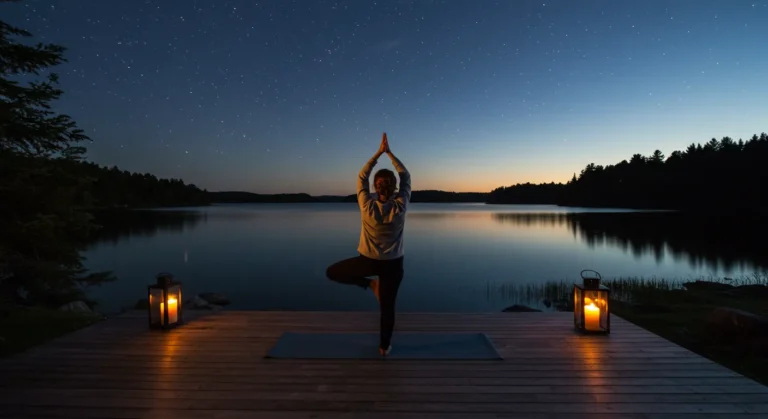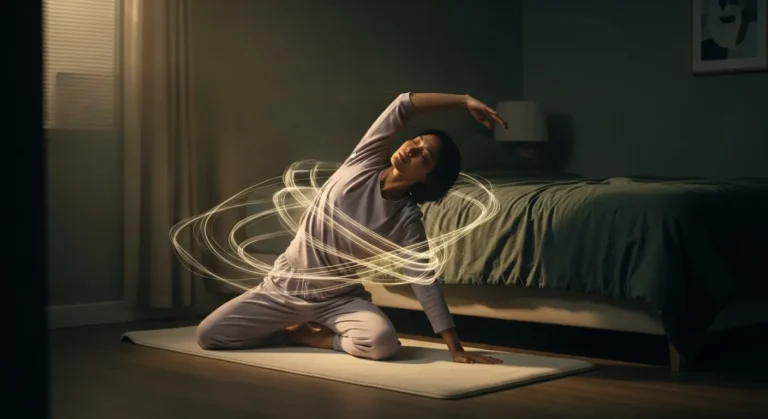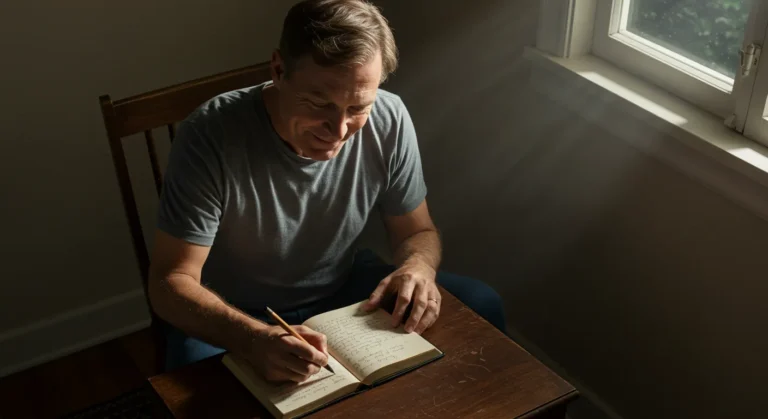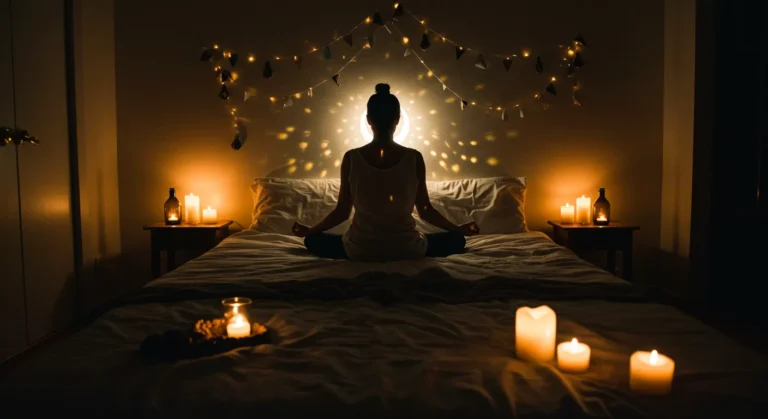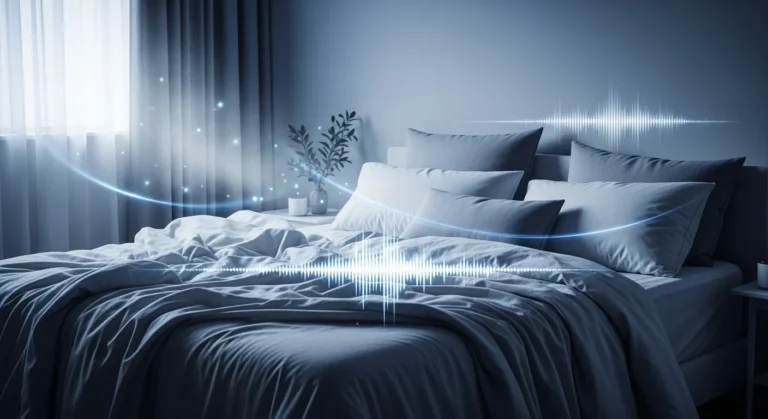Deep Sleep: The Ultimate Guide to Transform Your Nights and Wake Up Refreshed Every Morning
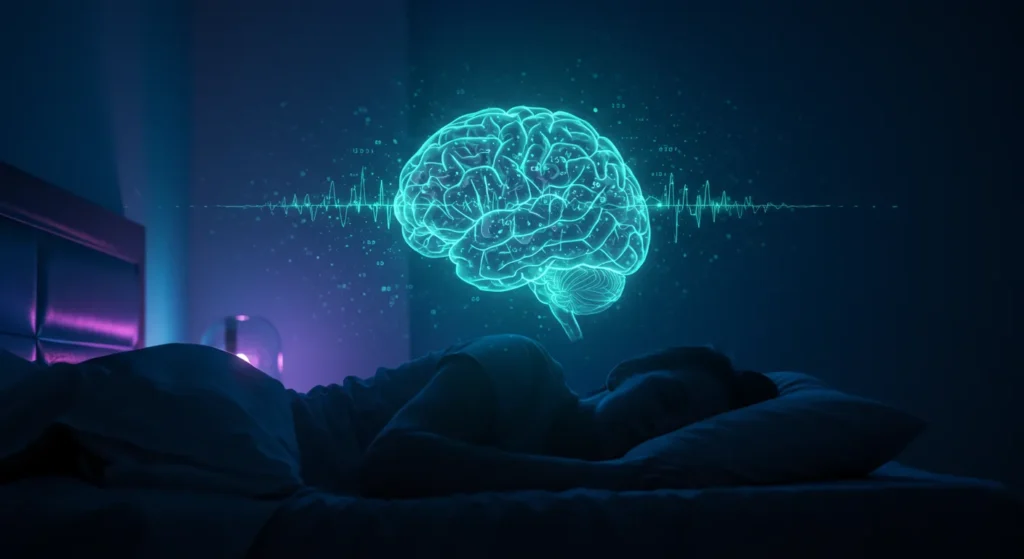
You know that feeling when you wake up after eight hours of sleep but still feel like you’ve been hit by a truck? We’ve all been there. You’re doing everything “right” – going to bed at a reasonable time, avoiding screens before bed – yet you’re still tossing and turning, mind racing, wondering why quality sleep feels so elusive.
Here’s the thing: deep sleep isn’t just about the hours you spend in bed. It’s about the quality of rest your brain and body actually get during those precious nighttime hours. And honestly? Most of us are missing out on the deep, restorative sleep that makes us feel truly alive.
We’re Federico and Giulia, and we’ve spent years diving deep into biohacking and the science of sleep optimization – not just reading about it, but living it, testing it, and helping hundreds of people transform their nights. What we’ve learned might surprise you: the difference between feeling exhausted and feeling energized often comes down to a few simple adjustments that most people completely overlook.
Ready to discover what real rest feels like? Let’s dive in.
What Is Deep Sleep and Why It Matters
Think of sleep better like a carefully orchestrated symphony. Your body doesn’t just “turn off” when you close your eyes – it cycles through distinct stages, each serving a crucial purpose. And deep sleep? That’s your body’s maintenance mode, where the real magic happens.
Understanding the Stages of Sleep
Your sleep cycle runs on roughly 90-minute intervals, moving through four distinct stages:
Light Sleep (Stages 1 & 2): This is your transition zone. Your heart rate and breathing slow down, but you’re still relatively easy to wake up. Think of it as your body’s way of saying “okay, we’re getting ready for the good stuff.”
Deep Sleep (Stage 3): This is where your body becomes a restoration powerhouse. Your brain waves slow to delta waves, your muscles completely relax, and your body gets busy repairing tissues, consolidating memories, and releasing growth hormones. You’re pretty much dead to the world – and that’s exactly what you want.
REM Sleep: Your brain becomes incredibly active while your body stays paralyzed. This is where vivid dreams happen and where your brain processes emotions and consolidates learning.
Here’s what’s fascinating: you spend about 15-20% of your total sleep time in deep sleep, but this percentage decreases as you age. A 20-year-old might get 20% deep sleep, while a 60-year-old might only get 5%. This partly explains why older adults often feel less rested even with adequate sleep time.
Benefits of Deep Sleep for Energy, Focus, and Mood
Let’s get real about what deep sleep actually does for you. We’re not talking about vague “feeling better” – we’re talking about measurable, noticeable changes in how you function.
Physical Recovery: During deep sleep, your body releases growth hormone, repairs damaged cells, and strengthens your immune system. Ever notice how you get sick more often when you’re not sleeping well? That’s your immune system running on empty.
Mental Clarity: Deep sleep is when your brain literally cleans house. The glymphatic system – think of it as your brain’s janitor – becomes incredibly active, washing away metabolic waste and toxins that build up during the day. This includes beta-amyloid plaques associated with Alzheimer’s disease.
Emotional Regulation: When you don’t get enough deep sleep, your amygdala (the brain’s alarm system) becomes hyperactive while your prefrontal cortex (the rational thinking center) goes offline. Translation? You become more reactive, more stressed, and less able to handle life’s daily challenges.
Memory Consolidation: Your brain takes the important stuff from the day and files it away properly during deep sleep. Students who prioritize sleep actually perform better on tests than those who pull all-nighters – the research is crystal clear on this.
We’ve seen this firsthand with our clients. Sarah, a marketing executive, came to us exhausted despite sleeping 7-8 hours nightly. After tracking her sleep and implementing our deep sleep strategies, she discovered she was only getting about 45 minutes of deep sleep per night. Within three weeks of optimization, she was getting 90 minutes of deep sleep and described feeling “like a different person” – sharper, calmer, and more energetic.
Common Sleep Disruptors You Might Overlook
Before we dive into solutions, let’s talk about the sneaky saboteurs that might be stealing your deep sleep without you realizing it. Some of these might surprise you.
Everyday Habits That Interfere With Sleep
Late-Day Caffeine: We all know not to drink coffee before bed, but did you know caffeine has a half-life of 6 hours? That afternoon espresso at 2 PM? Half of it is still in your system at 8 PM, quietly interfering with your ability to fall into deep sleep stages.
Inconsistent Sleep Schedule: Your circadian rhythm thrives on predictability. Going to bed at 10 PM on weekdays and 1 AM on weekends confuses your internal clock. It’s like constantly giving your body jet lag – no wonder you feel terrible.
Evening Exercise: While regular exercise improves sleep quality, intense workouts within 3 hours of bedtime can be too stimulating. Your core body temperature needs to drop for deep sleep to occur, and vigorous exercise does the opposite.
Stress and Racing Thoughts: This is a big one. When your mind is churning through tomorrow’s to-do list or replaying today’s stressful moments, your nervous system stays in “fight or flight” mode. You might fall asleep, but you’ll spend more time in light sleep stages.
Alcohol as a Sleep Aid: Here’s a common misconception: alcohol might help you fall asleep faster, but it severely disrupts your sleep architecture. You’ll get less REM sleep and less deep sleep, leading to that groggy, unrefreshed feeling the next day.
Environmental Factors You Can Easily Optimize
Your bedroom environment plays a massive role in sleep quality, yet most people treat it as an afterthought.
Temperature: Your ideal sleep temperature is cooler than you think – between 60-67°F (15-19°C). A room that’s too warm prevents your core body temperature from dropping, which is essential for deep sleep initiation.
Light Pollution: Even small amounts of light can disrupt your circadian rhythm. That charging phone, the LED on your cable box, streetlights creeping through your curtains – they’re all potential sleep disruptors. Your bedroom should be cave-dark.
Noise: Sudden noises can bump you out of deep sleep even if they don’t fully wake you. Consistent background noise (like a fan or white noise machine) can actually improve sleep by masking these disruptive sounds.
Air Quality: Poor air quality – whether from allergens, dust, or inadequate ventilation – can cause subtle sleep disruptions. Your body needs optimal oxygen levels to achieve deep sleep stages.
Mattress and Pillow: This might seem obvious, but we’re amazed how many people suffer through uncomfortable sleep surfaces. Your mattress should support your spine’s natural alignment, and your pillow should keep your neck in a neutral position.
Simple Habits That Naturally Support Deep Sleep
Now for the good stuff – practical strategies that actually work. These aren’t complicated biohacks requiring expensive gadgets. They’re simple, sustainable healthy sleep habits that you can start implementing tonight.
Evening Routines That Help You Wind Down
The 3-2-1 Rule: Stop eating 3 hours before bed, stop drinking fluids 2 hours before bed, and stop screens 1 hour before bed. This gives your body time to digest, reduces nighttime bathroom trips, and allows your brain to start producing melatonin naturally.
Create a Transition Ritual: Your brain needs a clear signal that it’s time to shift from “day mode” to “sleep mode.” This could be as simple as making herbal tea, doing gentle stretches, or reading a few pages of fiction. The key is consistency – do the same things in the same order every night.
Brain Dump Technique: Keep a notebook by your bed and spend 5 minutes writing down anything on your mind – tomorrow’s tasks, random thoughts, worries. This simple practice helps quiet mental chatter and signals to your brain that it’s safe to let go.
Progressive Muscle Relaxation: Starting with your toes and working up to your head, tense each muscle group for 5 seconds, then release. This physical practice helps release stored tension and activates your parasympathetic nervous system (your body’s “rest and digest” mode).
We’ve found that the most successful sleepers don’t try to implement everything at once to get more deep sleep. They pick one or two habits and master them before adding more. Maria, one of our clients, started with just the brain dump technique and saw her sleep quality improve within a week.
Light, Temperature, and Sound: Setting the Right Mood to Sleep Well
Master Your Light Exposure: Light is your circadian rhythm’s primary cue. Get bright light (ideally natural sunlight) within an hour of waking, and dim your lights progressively throughout the evening. If you must use screens, blue light blocking glasses can help, but limiting screen time is still better.
Temperature Hacking: Beyond keeping your room cool, you can hack your body’s natural temperature rhythm. Take a warm bath or shower 90 minutes before bed – the rapid temperature drop afterward mimics your body’s natural sleepiness signal.
Sound Strategy: If you live in a noisy environment, consistent background noise is your friend. White noise, brown noise, or even the steady hum of a fan can mask disruptive sounds. Some people prefer earplugs, but make sure they’re comfortable for side sleeping.
Bedding Choices: Natural, breathable fabrics like cotton, linen, or bamboo help regulate body temperature. Weighted blankets (typically 10% of your body weight) can provide gentle pressure that activates your parasympathetic nervous system, promoting deeper sleep.
Natural Tools That Support Better Sleep
Let’s talk about tools and techniques that can enhance your sleep without relying on supplements or medications. These are things we’ve personally tested and recommended to clients with great success.
Sleep Accessories and Wearables to Try
Sleep Tracking Devices: A good sleep tracker can provide valuable insights into your sleep patterns. Look for devices that track sleep stages, not just total sleep time. Popular options include the Oura Ring, Whoop Strap, or even newer smartwatches with advanced sleep tracking.
Blackout Solutions: If blackout curtains aren’t an option, a high-quality sleep mask can be a game-changer. Look for contoured masks that don’t put pressure on your eyes. Some people also benefit from blackout stickers for small LED lights around the bedroom.
Temperature Regulation: Cooling mattress pads or temperature-regulating pillows can help maintain optimal sleep temperature. If these are outside your budget, simply keeping a fan running or using breathable bedding can make a significant difference.
Aromatherapy: Essential oils like lavender, chamomile, and sandalwood can promote relaxation. Use a diffuser, or simply add a drop or two to your pillow. The key is consistency – your brain will learn to associate these scents with sleep time.
Non-Invasive Techniques Backed by Experience
Breathing Exercises: The 4-7-8 breathing technique can be remarkably effective. Inhale for 4 counts, hold for 7, exhale for 8. Repeat 3-4 times. This activates your vagus nerve and shifts your nervous system into relaxation mode.
Meditation and Mindfulness: You don’t need to become a meditation master. Even 5-10 minutes of guided meditation before bed can significantly improve sleep quality. Apps like Headspace or Calm offer sleep-specific programs.
Gentle Movement: Light stretching or restorative yoga poses can release physical tension and calm your mind. Child’s pose, legs up the wall, and gentle spinal twists are particularly effective.
Journaling: Beyond the brain dump technique, gratitude journaling can shift your mindset from stress to appreciation. Write down three things you’re grateful for from the day – it’s simple but powerful.
Temperature Exposure: This might sound counterintuitive, but brief cold exposure (like a cold shower) earlier in the day can improve deep sleep later. It helps regulate your circadian rhythm and improves your body’s temperature regulation.
Who We Are and Why You Can Trust This Guide
Before we go further, let’s talk about why we’re so passionate about sleep optimization and why our approach might be different from what you’ve heard before.
Federico: For years, I wore sleep deprivation like a badge of honor. Convinced that success meant sacrificing sleep, I consistently went to bed well past 3 AM, only to get up a few hours later. This habit completely destroyed my circadian rhythm. The result? I wasn’t just tired; I woke up every single morning feeling groggy (rintronato), with a mental fog that made my thinking slow and sluggish. I thought I was being productive, but I was operating at a fraction of my true potential.
The real wake-up call came when my memory started to fail me—forgetting important conversations and losing focus during meetings. That’s when I realized that my late-night habits weren’t a sign of strength, but the very thing holding me back.
Giulia’s story starts from a different place but ends with the same conclusion. Her struggle wasn’t getting to bed; it was staying asleep. Despite spending 8 hours in bed, her sleep was incredibly fragile and light. The slightest noise—the sound of traffic from the street, a neighbor’s dog barking—would jolt her awake, shattering any chance of restorative rest. Her nights were a frustrating series of awakenings that left her exhausted.
When traditional sleep advice fails, she works deeply in research and uses everything from temperature optimization to breathing to make a sleep session flexible for disruptions. Together, one of our two different paths – one of the ruins of a ruin, took the other, the other frequent sleep – us to a shared passion.
We have tested dozens of strategies on ourselves, tracked thousands of hours of sleep data and revealed what really works versus what the principle looks good. Whatever we share here is not just research; This is the result of our personal journey to restore our nights and really refreshed.
How to Sleep Better: What Makes Our Approach Different (and Sustainable)
We Focus on What Works, Not What’s Trendy: The sleep optimization world is full of expensive gadgets and complicated protocols. We’ve found that the fundamentals – consistent sleep schedule, optimized environment, proper wind-down routine – deliver 80% of the results with 20% of the effort.
We Emphasize Sustainability: A sleep routine that works for a week but becomes unsustainable isn’t helpful. Our strategies are designed to fit into real life, with real schedules and real constraints.
We Test Everything: We don’t recommend anything we haven’t personally used and tested. If it works for us and our clients consistently, it makes the cut. If it doesn’t, we don’t waste your time with it.
We Understand Individual Differences: What works for one person might not work for another. We help you find your personal sleep optimization recipe rather than pushing a one-size-fits-all solution.
We’re Transparent About Limitations: Sleep optimization can do amazing things, but it’s not magic. We’re honest about what you can expect and realistic about timelines.
Getting Started: Build Your Personalized Sleep Ritual
Ready to transform your sleep? Here’s how to start building your personalized deep sleep strategy without overwhelming yourself.
How to Fix Your Sleep Schedule Fast: Track What Works With a Simple Sleep Log
Before making changes, spend a week tracking your current patterns. Note:
- Bedtime and wake time
- How long it took to fall asleep
- How many times you woke up during the night
- How you felt upon waking (1-10 scale)
- What you did in the 2 hours before bed
- Room temperature and any environmental factors
This baseline data will help you identify patterns and measure progress. You don’t need fancy equipment – a simple notebook or phone app works fine.
Sleep Quality Tracking Table:
| Date | Bedtime | Wake Time | Fall Asleep Time | Night Wakings | Morning Energy (1-10) | Pre-bed Activities | Room Temp | Notes |
| Mon | ||||||||
| Tue | ||||||||
| Wed | ||||||||
| Thu | ||||||||
| Fri | ||||||||
| Sat | ||||||||
| Sun |
Start Small: Choose One Tactic Tonight
The biggest mistake people make is trying to overhaul their entire sleep routine overnight. Instead, pick ONE strategy from this guide and focus on that for a week. Here are our top recommendations for beginners:
Easiest Win: Consistent Sleep Schedule Go to bed and wake up at the same time every day, even on weekends. Yes, even on weekends. This single change can dramatically improve your deep sleep percentage within 1-2 weeks.
Biggest Impact: Optimize Your Sleep Environment Make the best environment for sleep, your bedroom as dark, cool, and quiet as possible. This often provides immediate improvements in sleep quality.
Most Overlooked: Evening Light Management Dim your lights and avoid screens for 1 hour before bed. If you must use devices, use blue light blocking glasses or enable night mode.
Best for Anxious Minds: Brain Dump Technique Spend 5 minutes before bed writing down everything on your mind. This simple practice can quiet mental chatter and help you fall asleep faster.
Once you’ve mastered one habit, add another bedtime ritual. Building sustainable healthy sleep habits and sleep rituals is like compound interest – small, consistent improvements create dramatic long-term results.
We wrote also this article with a simple 5-step plan to wake up energized.
Want More? Explore Our Favorite Sleep Tools
After testing countless products, here are the tools we actually use and recommend:
Sleep Trackers:
- Oura Ring (for comprehensive sleep tracking and recovery )
- Whoop Strap (for athletes and fitness enthusiasts)
Environment Optimization:
- Blackout curtains or high-quality sleep mask
- White noise machine or earplugs
- Smart thermostat or cooling mattress pad
Relaxation Tools:
- Essential oil diffuser with lavender or chamomile
- Weighted blanket (10% of body weight)
- Blue light blocking glasses
Natural Sleep Support:
- Magnesium glycinate supplement (if needed)
- Herbal teas (chamomile, passionflower, valerian)
- Comfortable, breathable bedding
Remember, you don’t need all of these. Start with addressing your biggest sleep disruptor first.
Want to Dive Deeper?
We’ve created additional resources to support your journey.
The truth is, quality sleep isn’t a luxury – it’s the foundation that makes everything else in your life work better. When you sleep well, you think more clearly, feel more emotionally balanced, have more energy, and even look better.
We’ve seen it happen hundreds of times: people who thought they were “just tired” discover they actually feel amazing when they prioritize deep sleep. It’s not about sleeping more hours; it’s about sleeping better.
Your journey to better sleep starts with a single step. Pick one strategy from this guide, implement it tonight, and pay attention to how you feel tomorrow. Small changes, consistently applied, create remarkable transformations.
Sweet dreams, and here’s to waking up refreshed and ready to take on the world.
Disclaimer: The information provided is for educational purposes only, not a substitute for professional medical advice. Always consult a healthcare professional.


